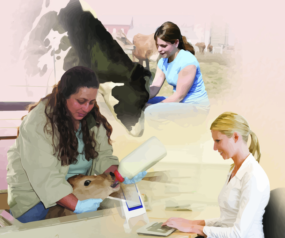Farmers elected Donald Trump as the 45th president of the U.S., granting him 75 percent of the votes in the Farm Belt and heavy margins of victory in other rural areas. Those in agriculture are largely responsible for his success in key swing states needed to win the election.
Despite that, farming gains little national media attention, particularly in such politically turbulent times. It is little surprise it has seldom made the headlines as we move closer to Trump’s first two years of office, making it more difficult to consider what he has done for the group of people who have supported him the most.
In light of this, here is an unbiased, non-political look at how agriculture has been affected thus far by Trump’s decisions. To present the column without agenda, only statements from farm organizations have been included.
The speech to farm bureau
On January 8, 2018, Trump spoke to the American Farm Bureau Federation, the first president to do so in a quarter-century. In his speech, he suggested the elimination of the estate tax will benefit farmers, as well as other deregulation, such as rescinding the Clean Water Rule. He asked farmers how they liked their 401(k) plans after the then-rise in the stock market.
What he failed to address included his proposed immigration policies that would limit the supply of labor to larger farms. In addition, he quickly mentioned his controversial threat to end the North American Free Trade Agreement, which is ultimately responsible for a quarter of American agriculture’s income.
Despite that, Zippy Duvall, president of Farm Bureau stated: “We have had a seat at the table with the Trump administration. Folks, I can tell you it has been a breath of fresh air to be able to advocate for getting things done.”
Not everyone was impressed by the speech, however. Some farmers and news outlets pointed out Farm Bureau has a history of supporting agribusiness instead of family farms, the former of which has more to gain from Trump’s deregulation.
Rob Larew, vice president of public policy and communications for the National Farmers Union, suggested, “The vast majority of these family farms are in no way impacted by the estate tax.” Others listening pointed out most farmers don’t have a 401(k) or any other form of retirement and felt it disingenuous to brag about Wall Street when farmers have faced declining incomes for the last handful of years.
Trump releases his budgets
In his first two years of office, President Trump’s annual budgets have drawn ire from various farm organizations. In 2017, his recommendation to Congress was to cut Farm Bill programs by $230 billion and reduce the USDA’s annual budget by 21 percent. While it is important to note it is ultimately Congress that passes the budget, some feared it showed a lack of commitment to agriculture.
The National Farmers Union reacted with the following statement: “The President’s proposed budget is an assault on the programs and personnel that provide vital services, research and a safety net to America’s family farmers, rural residents and consumers. It is deeply disappointing the President would propose such cuts, especially in the midst of a farm crisis.”
In February 2018, Trump’s budget for the upcoming year was labeled a “fiscal déjà vu,” as it also included recommendations to eliminate many programs that serve rural residents and cut USDA spending by 16 percent.
While the Center for Rural Affairs applauded the fact the proposal would, they believe, create more fairness in the way crop subsidies are dispersed, it ultimately drew their condemnation. “Mostly, however, Trump’s budget proposal would drain support for rural America. We fear these actions represent a lack of understanding of rural America’s struggles.”
Withdrawal from GIPSA
The Obama administration created the Grain Inspection, Packers and Stockyards Administration (GIPSA), also known as the Farmer Fair Practices Rule, enacted to allow farmers a more level playing field in selling their meat products to multinational companies. It prevented anti-competitive behavior among agribusiness companies, such as forcing farmers into low-paying contracts or requiring they make renovations they might not be able to afford.
Trump removed livestock from GIPSA’s jurisdiction, a move Farm Bureau called “good news for farmers and ranchers.” Farm Aid, however, an organization that works to support family farms, was less pleased. They stated: “The Trump administration’s abandonment of the Farmer Fair Practices Rules is an insult to farmers and ranchers across the country who seek a more just and fair marketplace.”
The tax bill
Once again, the National Farmers Union and Farm Bureau found themselves at odds over Trump’s policy, this time in regard to his Tax Cut and Jobs Act (commonly known as Trump’s tax bill). The Farm Bureau states the act will benefit most farmers and ranchers, and “allow them to expand their operations and stimulate the economy.
The National Farmers Union fears the bill will lead to reduced spending on agriculture in the future. Research from the USDA concludes the farmers’ benefits from the bill will be uneven, with lower-income farmers paying more in the end, and ‘the top 10 percent of farm households accruing between 50 and 70 percent of the total tax cuts made under the TCJA.’”
It appears dairy farmers may be affected the most by the tax bill, as it includes the elimination of Section 199, which allows cooperatives to deduct a portion of their annual expenditures. According to the Wall Street Journal, this deduction equates to $100 per cow each year, an expense expected to be passed onto the farmer.
The National Council of Farmer Cooperatives has been working to oppose the removal of Section 199 but does not appear to have been successful thus far. ![]()
Ryan Dennis is the son of a former dairy farmer from western New York and a literary writer.






